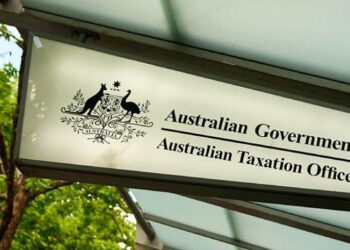In a recent blog post, the SMSF service provider’s executive manager of SMSF technical and private wealth, Graeme Colley, said if a late-lodging fund had their details removed on the SFLU system, the compliance impacts could mean they would be restricted in what investments they could make until the details were reinstated.
“Under the anti-money laundering laws, it is compulsory for investment houses and other financial service providers to undertake identification checks of investors,” Mr Colley said.
“When it comes to your SMSF, the investment house may use SFLU as an independent third-party check to confirm the fund’s identification and compliance status. If your SMSF’s compliance status has been removed, you can expect in some circumstances that the fund will be prohibited from making certain investments depending on the policy of the investment house.”
Mr Colley said for those funds who were changing from an individual to a corporate trustee, this could also be problematic in terms of possibly restricting any late-lodging funds which had their details removed from transacting on their SMSF bank accounts.
“The change [of structure] will require the trustee’s name as the legal owner of the investments and will require updating to reflect the change. This will require the fund trustee to notify the relevant financial institution with details of the change, and as part of their policies, they may use the SFLU to confirm the fund’s compliance status,” he said.
“If the compliance details have been removed, it is possible that your SMSF may not be able to transact on its bank accounts.”
Based on ATO data around the incidence of late annual return lodgement, Mr Colley said up to 90,000 SMSFs may be affected by the recent policy change, meaning SMSF professionals should ensure they lodged on time where possible.
“Obviously, the best way to avoid your SMSF’s regulation status being removed is to make sure the fund’s annual return reaches the ATO in time,” he said.
“In a perfect world, this is achievable. However, the ATO’s SMSF annual return lodgement records show that between 85 and 90 per cent of SMSF returns are generally lodged on time each year, so not all of them make it on time.”



I see ASIC’s cash grab from limited licensees has begun again.
$2642 to remain a limited licensee.
No extra revenue generated by this license.
I wish the professional bodies would hurry up and get the licensing sorted.
As a small firm this is financially unsustainable together with all the extra exams, and training.
Little wonder very few accountants went down the path of limited licensing.
Please hurry up and get this sorted. Payment due 15 March for the coming year. OUCH.
[i]“In a perfect world, this is achievable.”[/i]
Theoretically, no reason any Return should be lodged late but, hey, shit happens.
Could Mr Colley please provide directions to this “perfect world” so we can all reside there and live happily ever after, never having to deal with another disorganised, tardy, late-lodging client?
To Disaster Area, there is ample time to get an SMSF prepared, audited and lodged annually and the onus goes on to the disorganised Trustees and Administrators. If they are under resourced, poorly managed, incompetent etc perhaps wind up the SMSF or get out of the space if an administrator. Alternatively send it to a Super AA type which is a tactic an SMSF specialist firm I know if is now doing.
Yes, so adminstrators should lodge them early, with errors, rather than do it properly – simply to meet the red tape requirements of the ATO, who were totally clueless about the flow on consequences, until they were advised about it. Just thick as bricks.
It’s a draconian measure and should be abandoned.
I think it is good as there is simply no excuse (outside the extreme of which the ATO are accommodating) to lodge an SMSF return late so this will serve as a further incentive for the delinquent to lodge on time, and if they don’t administrators should start to consider removing them from their client list OR of its the administrators fault clients/advisers should walk straight away.
SFLU doesn’t include the name of the trustee. Why Not? If it is being used for identification purposes and all it contains is the fund name, then isn’t the trustee’s details critical?
An SMSF will not be removed from SFLU if you engage with the ATO prior to the due date and request a deferral. We
understand unexpected events occur so best to be on the front foot if you think you can’t meet the due date and either contact your tax agent or the ATO directly.
Agreed, and this would be a wide scale issue for some large administrators who are frequently lodging clients tax returns late.